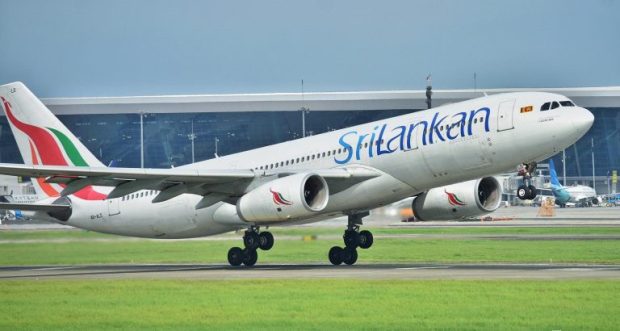By Shihar Aneez
COLOMBO – Sri Lanka expects to raise an ambitious $4.5 billion from selling both profitable and loss-making state-owned enterprises (SOEs), two officials said, as the crisis-hit nation is desperately looking for foreign inflows to come out of an unprecedented economic crisis.
“The list includes Sri Lanka Telecom, Litro Gas, Sri Lankan Catering, Airport Ground handling, Hilton Hotel, and many others,” one source said, adding, “We are open for negotiations and we will be doing everything in a transparent manner. We will start the divestment process with a sentiment boost after the IMF loan is approved.”
Another source who has knowledge on the state-enterprise restructuring confirmed the move. “We estimate to raise around $4.5 billion from selling 14 state firms,” he said.
An Indian private firm has been keen on the loss-making SriLankan Airlines while Qatar is interested in some leisure assets, the second source said.
The divestment of the state assets comes as part of the government’s restructuring process of state sector enterprises.
President Ranil Wickremesighe has said state sector restructuring is a must to reduce burden on the people.
Former Prime Minister Mahinda Rajapaksa-led nationalist Sri Lanka Podujana Peramuna (SLPP) has strongly opposed moves to sell state assets citing such privatization will have negative impacts.
Rajapaksa, when he was the president in 2008, did not extend a 10-year deal between currently loss-making SriLankan Airlines and Dubai-based Emirates after the airline refused seats to him and 35 officials who were visiting Britain.
Later he ran the local carrier with his brother-in-law as the chairman. However, the airline has been operating at a staggering loss since 2008.
Similar to Rajapaksa, many politicians in Sri Lanka have run state-owned enterprises under their ministries with no vision while dumping all their political supporters to earn a salary sometimes without doing anything.
Rajapaksa and his younger brother Gotabaya Rajapaksa, the former president were ousted from power due to their wrong economic policies amid public protests. Since then, the SLPP has been backing Wickremesinghe, a pro-liberal politician.
The SLPP is now silent over the privatization deals.
Government officials have said restructuring of state-owned enterprises is one of the key conditions for a $2.9 billion IMF loan, which is expected to be approved by the global lender’s executive board towards the end of this month.
Selling of state assets has been long opposed by strong trade unionized state-owned enterprises. However, President Wickremesinghe has been stubborn in his policies in a bid to move away from the economic crisis.
-economynext.com



Comments are closed, but trackbacks and pingbacks are open.